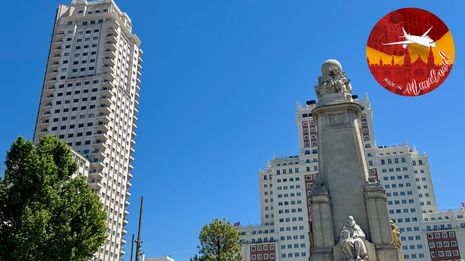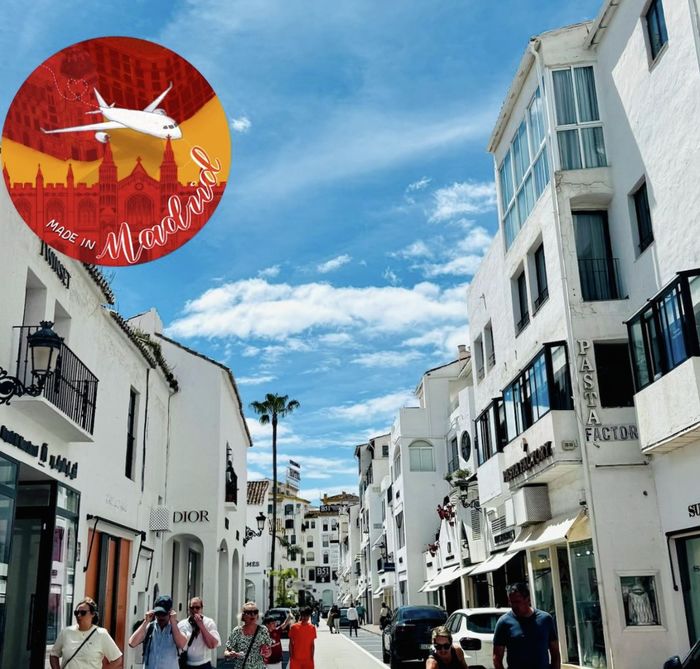Made in Madrid: lights out, sun’s out
In the penultimate installment of his column, Patrick Dolan reflects on his enlightenment after a power cut

When a power cut happens, you don’t really expect it to last longer than a couple of hours, let alone for it to affect multiple countries. But that’s exactly what happened on 28th April, when the massive blackout hit the Iberian Peninsula, where the power did not return for a good twelve hours. I’d decided to use my day off on that Monday to do a solo day trip to a small village outside of Madrid. I got an early train, but within 20 minutes of arriving, I heard locals gossiping about a power outage. Yet with the sun brightly blazing, it was difficult to believe at first. That was until cafés started turning people away and card machines stopped working. Luckily, I still had service and quickly realised this wasn’t just a village problem, but quite widespread. I tried to contact friends back in the city, but soon realised they had lost signal altogether.
"But if there was a silver lining, it was witnessing how quickly community kicks in when everything else falls apart"
After a bit of exploring, I headed back to the village train station, naively hoping to get home, but it was pitch black and deserted – reminiscent of the early days of COVID. With only ten euros to my name in cash and no clear route back to Madrid, it was only a random bus heading for the city’s outskirts – that appeared on the side of the road in my moment of need like that scene out of Harry Potter – that got me home. Back in Madrid, the streets were like something out of a film. Traffic lights were out, shops shut, and people milled around with no raison d’être. Supermarkets had been raided, radio updates blared from balconies, and locals danced in the streets. It would not be until midnight that night that the power came back on and the city would erupt in cheers. As much as I panicked about getting home that day, I could not shake the old time cliché: how utterly dependent we have become on technology. But if there was a silver lining, it was witnessing how quickly community kicks in, in a country like Spain, when everything else falls apart. It reminded me of a kind of solidarity I’d feared we were losing.
Four weeks on, Madrid hasn’t forgotten that day. And we seem to be enjoying the good karma: endless sun and temperatures well into the 30s. As they say here, “nueve meses de invierno, tres meses de infierno”. Having been back home recently, I’ve felt conflicted: I’m not desperate to leave Spain, but I am also not dreading going back to the UK. The end of year abroad is strange – you want to maximise your limited time here, yet there’s quite a pull back home as friends finish exams and summer begins. It’s tempting to leave on a high, provided everything has gone as smoothly as it could have this year. And I do feel ready to go now, even if I’ll inevitably be sad. It’s worth saying: everyone structures their year abroad differently. Some stay in one place, some move around; some work, some study, some do all of the above. There’s no ‘proper’ way to do it. You shouldn’t measure your experience against other MMLers, or even let other people tell you what they think is best for you or what the ‘right’ way is. At Cambridge, people often think they know what’s best for you – even more than you do. It really is what you make of the year.
Speaking of home, it’s bittersweet to see Keir Starmer announce the Youth Mobility Scheme. I’m genuinely glad future students may enjoy the kind of freedom we had post-Brexit, but it’s hard to not feel frustrated that it’s just too late for us. That said, my visa situation ended up working out well, largely thanks to a mix of luck and being well prepared. If you are eligible for an EU passport, however, sort it out as soon as possible; it’s one of my few regrets that I didn’t have mine ready in time.
"After sitting through months of two-hours seminars conducted entirely in rapid Madrid Spanish, it would be ridiculous to say my Spanish has not improved."
I’ve also just finished my exams here. Of course, they are less intense than Cambridge, but still reasonably difficult, especially in your second language. Some people pretentiously claim that studying won’t improve your Spanish as much as working would. They would be wrong. I have done both, and it’s about immersion more than anything. After sitting through months of two-hours seminars conducted entirely in rapid Madrid Spanish, it would be ridiculous to say my Spanish has not improved.
Now, with exams done and the sun shining, I’m enjoying Madrid like a tourist – hosting friends, completing my bucket list, sunbathing and going to festivals. It feels just like a Spanish May Week. I’m excited for real May Week too, though I can’t help feeling a bit of a fraud turning up this year. But just because you are away for a year should not make you feel as if you can’t enjoy the typical Cambridge things; after all, your time as a Cambridge student, as well as being abroad, is limited too and it’s nice to enjoy the traditions with friends that are otherwise graduating.
As I wrap up my year abroad, maybe I didn’t learn as much academically with fewer than fifty working hours a week in a library. But I did learn something different. And while I would avoid the dreaded gap-year cliché that “I found myself in Madrid”, I did find a city and a year that I will not forget.
If you’d like to share your year abroad experience or advice for a final roundup piece – or you’re a prospective year-abroader with questions that you would like Paddy to answer in his final column – please email pd532@cam.ac.uk.
 News / Colleges charge different rents for the same Castle Street accommodation2 March 2026
News / Colleges charge different rents for the same Castle Street accommodation2 March 2026 News / News in Brief: waterworks, wine woes, and workplace wins 1 March 2026
News / News in Brief: waterworks, wine woes, and workplace wins 1 March 2026 News / Angela Merkel among Cambridge honorary degree nominees27 February 2026
News / Angela Merkel among Cambridge honorary degree nominees27 February 2026 News / Climate activists protest for ‘ethical careers policy’1 March 2026
News / Climate activists protest for ‘ethical careers policy’1 March 2026 News / King’s hosts open iftar for Ramadan3 March 2026
News / King’s hosts open iftar for Ramadan3 March 2026









